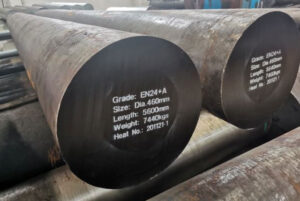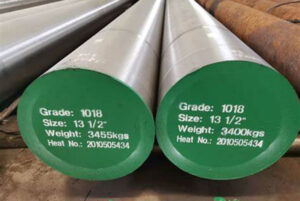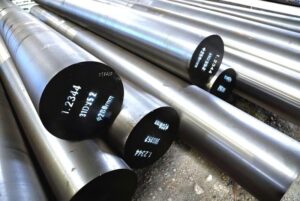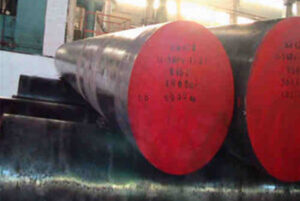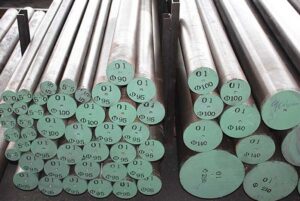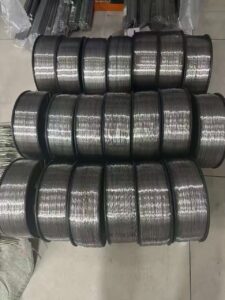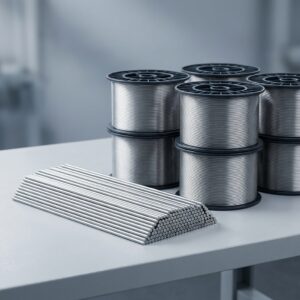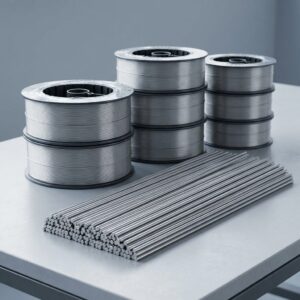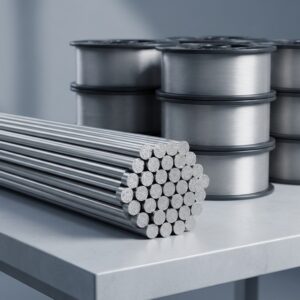Overview of Alloy Steel
Alloy steel is a marvel of modern engineering, boasting an impressive array of properties that make it indispensable in various industries. But what exactly is alloy steel? In simple terms, alloy steel is a type of steel that is alloyed with a variety of elements in total amounts between 1.0% and 50% by weight to improve its mechanical properties. The primary elements used in alloying steel are manganese, nickel, chromium, molybdenum, vanadium, silicon, and boron. These additions can provide enhanced hardness, strength, toughness, and wear resistance, making alloy steel incredibly versatile.
Imagine you’re baking a cake. Plain steel would be your basic sponge cake – it gets the job done, but it’s pretty basic. Alloy steel, on the other hand, is like a richly frosted, multi-layered cake with all the trimmings. Each element added to the steel acts like an ingredient, enhancing the final product in specific ways. The end result? A material that’s tougher, more durable, and better suited to the demands of modern construction and manufacturing.
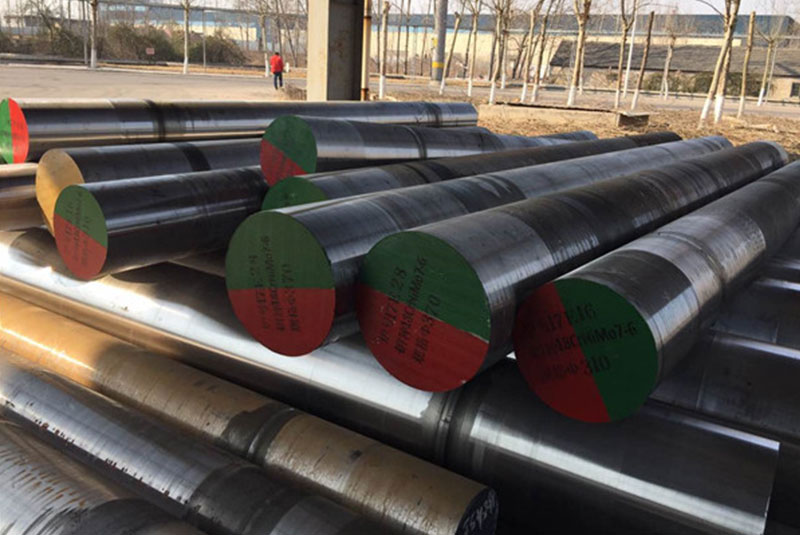
Chemical Composition of Alloy Steel
The chemical composition of alloy steel is crucial because it determines the material’s properties and suitability for various applications. Different elements are added to the steel to achieve desired characteristics.
| Element | Purpose | Percentage (%) |
|---|---|---|
| Carbon (C) | Increases hardness and strength | 0.1 – 1.5 |
| Manganese (Mn) | Improves toughness and hardness | 0.25 – 13 |
| Chromium (Cr) | Enhances corrosion resistance and hardenability | 0.3 – 4.0 |
| Nickel (Ni) | Improves toughness and corrosion resistance | 0.3 – 5.0 |
| Molybdenum (Mo) | Increases hardenability and strength at high temperatures | 0.1 – 1.0 |
| Vanadium (V) | Enhances strength and wear resistance | 0.1 – 0.5 |
| Silicon (Si) | Improves strength | 0.1 – 3.0 |
| Boron (B) | Increases hardenability | < 0.01 |
Each of these elements plays a unique role. For instance, chromium helps in creating a protective layer that resists oxidation, while nickel adds to the material’s overall toughness. It’s like a recipe where each ingredient must be measured precisely to achieve the perfect balance.
The Mechanical Properties of Alloy Steel
Understanding the mechanical properties of alloy steel is essential for determining its suitability for various applications. These properties include tensile strength, yield strength, hardness, and elongation.
| Property | Description | Typical Range |
|---|---|---|
| Tensile Strength | Maximum stress alloy steel can withstand while being stretched or pulled | 500 – 1200 MPa |
| Yield Strength | Stress at which material begins to deform plastically | 250 – 1000 MPa |
| Hardness | Resistance to deformation and scratching | 140 – 300 HB |
| Elongation | Measure of ductility, or the ability to stretch | 10% – 25% |
These mechanical properties make alloy steel a go-to choice for demanding environments. Imagine trying to build a skyscraper with weak steel – it just wouldn’t hold up. The tensile strength and yield strength of alloy steel ensure that structures can bear heavy loads without buckling, while its hardness and elongation provide the necessary durability and flexibility.
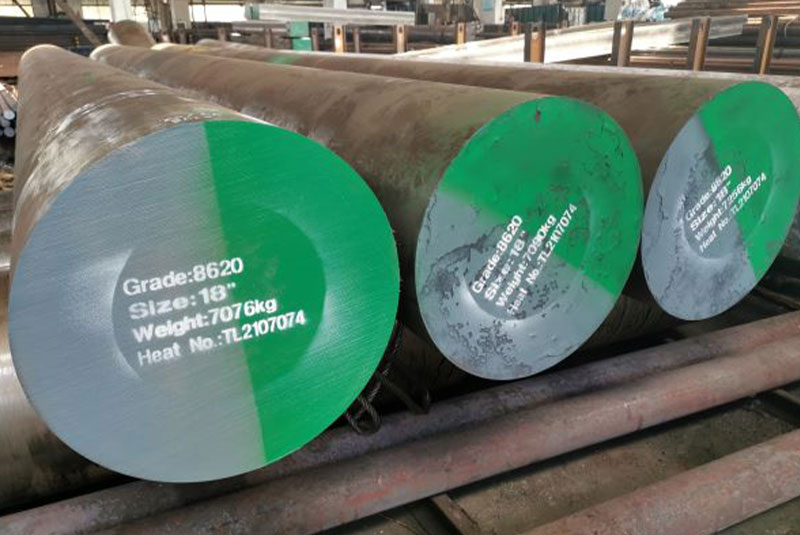
Applications of Alloy Steel
Alloy steel is used across a wide range of industries due to its versatile properties. Let’s take a closer look at some of its key applications.
| Industry | Application | Benefits |
|---|---|---|
| Construction | Structural components, bridges, buildings | High strength, durability |
| Automotive | Engine components, gears, axles | Wear resistance, toughness |
| Aerospace | Landing gear, turbine engines | High temperature resistance, strength-to-weight ratio |
| Oil and Gas | Drilling equipment, pipelines | Corrosion resistance, toughness |
| Heavy Machinery | Industrial tools, mining equipment | Wear resistance, durability |
Think of alloy steel as the Swiss Army knife of materials. Whether you’re constructing a towering bridge, building the latest high-performance car, or drilling deep into the earth for oil, alloy steel provides the necessary strength and resilience to get the job done.
Heat Treatment of Alloy Steel
Heat treatment is a crucial process that enhances the properties of alloy steel. It involves heating and cooling the material to achieve desired characteristics such as increased hardness or improved ductility.
| Heat Treatment Process | Description | Result |
|---|---|---|
| Annealing | Heating to a specific temperature and then slowly cooling | Softens steel, improves ductility |
| Quenching | Rapidly cooling from high temperature in water or oil | Increases hardness and strength |
| Tempering | Heating to a lower temperature after quenching | Reduces brittleness, improves toughness |
| Normalizing | Heating to a high temperature and air cooling | Refines grain structure, improves uniformity |
Imagine you’re a blacksmith forging a sword. The quenching process, where the red-hot metal is plunged into water, hardens the steel, making it strong enough to withstand battle. Similarly, heat treatment processes are used to tailor the properties of alloy steel for specific applications.
Suppliers and Pricing Details of Alloy Steel
The cost and availability of alloy steel can vary depending on several factors, including the type of alloy, the supplier, and market conditions.
| Supplier | Location | Alloy Steel Types Available | Approximate Price Range (per kg) |
|---|---|---|---|
| ArcelorMittal | Global | Various grades of alloy steel | $1.50 – $3.00 |
| Nippon Steel | Japan | High-strength alloy steels | $2.00 – $4.00 |
| POSCO | South Korea | Corrosion-resistant alloy steels | $1.80 – $3.50 |
| Tata Steel | India | Alloy steels for automotive and construction | $1.50 – $3.20 |
| U.S. Steel | USA | Tool and die steels | $2.00 – $4.50 |
Finding the right supplier is crucial. It’s like shopping for the best ingredients to bake your cake – you want to ensure you’re getting quality products that meet your specific needs.
Advantages and Disadvantages of Alloy Steel
Every material has its pros and cons, and alloy steel is no exception. Understanding these can help you decide if it’s the right choice for your application.
| Aspect | Advantages | Disadvantages |
|---|---|---|
| Strength | High tensile and yield strength | Can be brittle if not properly treated |
| Durability | Excellent wear and tear resistance | Higher cost compared to plain carbon steel |
| Corrosion Resistance | Good resistance to corrosion and oxidation | Requires precise alloying to achieve desired properties |
| Versatility | Can be tailored for specific applications | Complex heat treatment processes |
In many ways, choosing alloy steel is like opting for a luxury car over a basic model. The performance and durability are unmatched, but it comes at a higher cost and requires more maintenance.
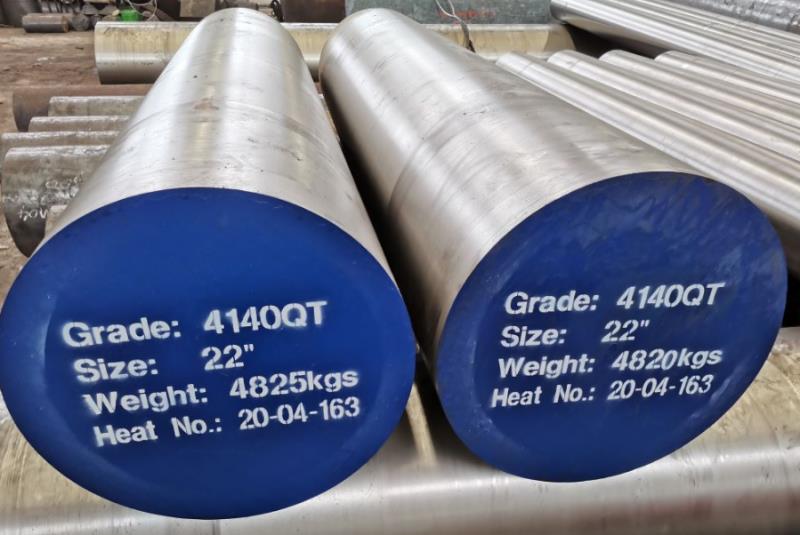
FAQ
| Question | Answer |
|---|---|
| What is alloy steel used for? | Alloy steel is used in construction, automotive, aerospace, oil and gas, and heavy machinery industries due to its enhanced mechanical properties. |
| How is alloy steel different from carbon steel? | Alloy steel contains additional elements like chromium, nickel, and molybdenum, which improve its strength, hardness, and corrosion resistance compared to carbon steel. |
| What are the benefits of heat treating alloy steel? | Heat treating can improve the hardness, strength, ductility, and toughness of alloy steel, making it more suitable for specific applications. |
| How do you choose the right type of alloy steel? | The choice depends on the specific requirements of your application, such as the need for corrosion resistance, high strength, or wear resistance. |
| Is alloy steel more expensive than regular steel? | Yes, alloy steel is generally more expensive due to the cost of additional alloying elements and complex manufacturing processes. |
Conclusion
Alloy steel is an extraordinary material that has revolutionized numerous industries. Its unique combination of strength, durability, and versatility makes it an essential component in everything from towering skyscrapers to high-performance vehicles. By understanding its chemical composition, mechanical properties, applications, and the importance of heat treatment, you can appreciate why alloy steel is often the material of choice for demanding applications. Whether you’re an engineer, a construction professional, or simply curious about materials science, alloy steel represents the pinnacle of modern metallurgy.

